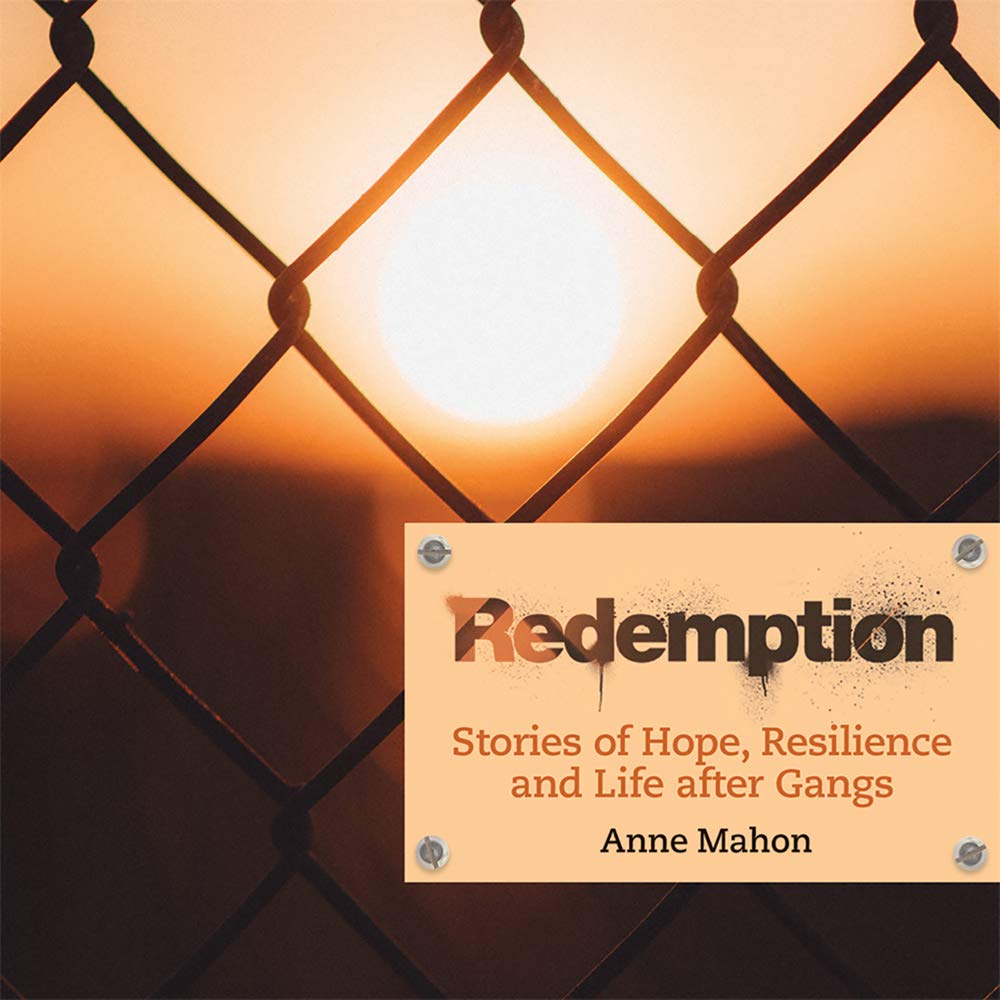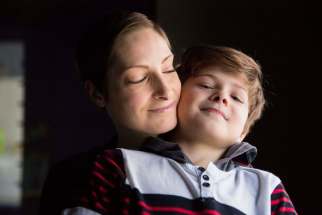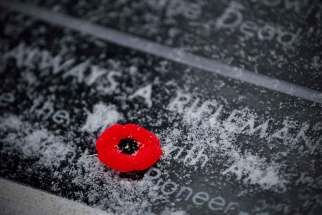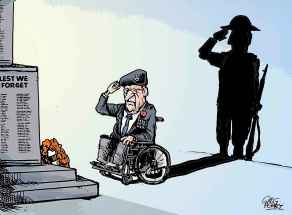Heart, soul in symbolic role Writer, volunteer, philanthropist Anne Mahon is the U of M 's new chancellor; guided by her faith, she's determined to make a difference
Read this article for free:
or
Already have an account? Log in here »
To continue reading, please subscribe:
Monthly Digital Subscription
$0 for the first 4 weeks*
- Enjoy unlimited reading on winnipegfreepress.com
- Read the E-Edition, our digital replica newspaper
- Access News Break, our award-winning app
- Play interactive puzzles
*No charge for 4 weeks then price increases to the regular rate of $19.00 plus GST every four weeks. Offer available to new and qualified returning subscribers only. Cancel any time.
Monthly Digital Subscription
$4.75/week*
- Enjoy unlimited reading on winnipegfreepress.com
- Read the E-Edition, our digital replica newspaper
- Access News Break, our award-winning app
- Play interactive puzzles
*Billed as $19 plus GST every four weeks. Cancel any time.
To continue reading, please subscribe:
Add Free Press access to your Brandon Sun subscription for only an additional
$1 for the first 4 weeks*
*Your next subscription payment will increase by $1.00 and you will be charged $16.99 plus GST for four weeks. After four weeks, your payment will increase to $23.99 plus GST every four weeks.
Read unlimited articles for free today:
or
Already have an account? Log in here »
Hey there, time traveller!
This article was published 08/11/2019 (2229 days ago), so information in it may no longer be current.
For Anne Mahon, it boils down to a question of faith.
When she was asked last year to become the University of Manitoba’s 14th chancellor, the Winnipeg writer, volunteer and philanthropist turned to prayer for guidance.
Raised a Protestant, she converted to Catholicism when she married Paul Mahon in 1987, the same year she graduated from the U of M’s faculty of human ecology with a major in marketing of apparel and textiles and a minor in business.
“It shapes every day,” the 54-year-old mother of three confides when asked about the role faith plays in her life. “I try to have it shape every decision. I pray daily. I prayed very hard before I took the chancellor’s job. The first book came from having a spiritual vision. Some people would roll their eyes, but it’s the truth.”

That’s the kind of person the newly minted chancellor is — she’s kind, compassionate, outgoing and forthright. Ask her a straight question and she’ll give you a straight answer. She calls herself a pragmatic extrovert, a curious but friendly person who is passionate about family, food, Victoria Beach, social justice and helping people living on the fringe.
The prospect of being named the ceremonial head of the university — a sort of goodwill ambassador responsible for conferring degrees and diplomas — never crossed her mind until she got a surprise phone call last year.
“I was curious what would it be like, how would it broaden my life. I also felt it was a once-in-a-lifetime opportunity. And community is important to me, and serving the community. I thought it was a very surprising way to serve,” says Mahon, whose three-year term began on June 1,when she succeeded Harvey Secter, who had served as chancellor since 2010.
The journey to becoming chancellor is “a super-wiggly road,” says Mahon, laughing as she shares a large salad and pizza at Casa Grande Pizzeria on Sargent Avenue. “I wouldn’t have been asked to be chancellor if I hadn’t written those books.”
As an award-winning author, Mahon has become a champion for immigrant and refugee families in Manitoba. Her two books tell the stories of the disempowered, giving voice to the voiceless.
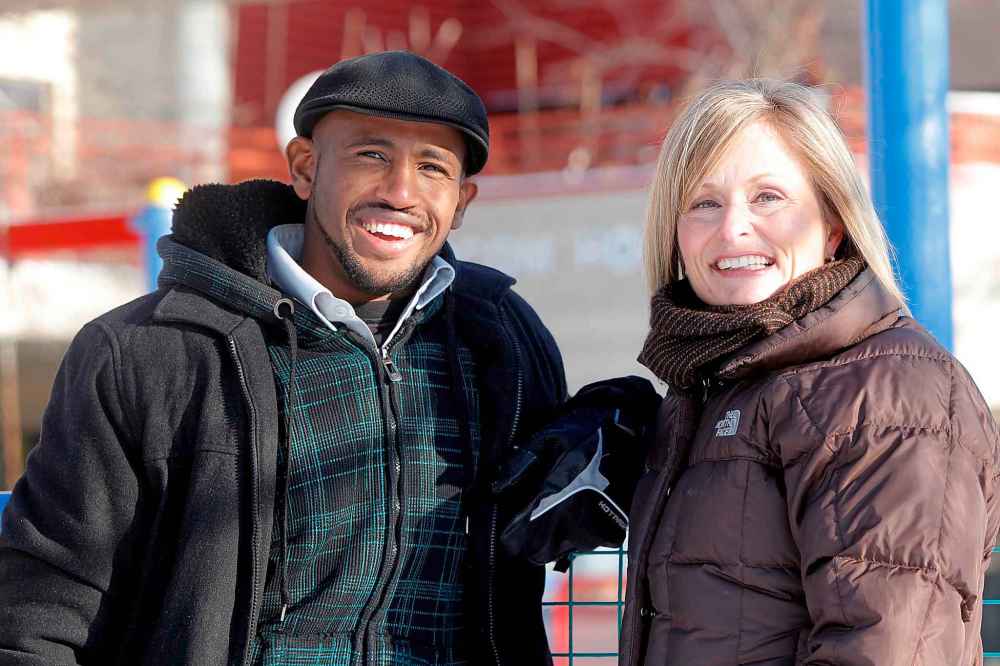
Her first book, 2013’s The Lucky Ones: African Refugees’ Stories of Extraordinary Courage, was a collection of personal accounts of heartbreaking loss and the resilience needed to begin in a new country. She takes the stories of people’s lives seriously; it’s as though they are sharing part of their soul, she says.
“That first book changed my life, and I’m not being casual when I say that,” she says.
It came to her in a spiritual vision as she lay in bed at home in 2006.
“I just had a flash and in the flash I saw the book, and the book was stories of African refugees, a collection written in the first person with photography. And then I had to figure out what the heck to do about that,” she says.
“The night before, I had watched something on CBC, a documentary piece about a refugee woman from Africa who had been a child soldier and then her house burned down. It was just awful. I cried and then I went to bed and then I had a fabulous sleep.
“I woke up about 6:30 in the morning and I was horrified. I thought, ‘I was thinking about that woman last night and then I had a great North American comfortable sleep.’ Then immediately just this flash came at me, and I saw this book about African refugees with multiple stories, with photography.”
In 2017, Great Plains Publications released her second book, Redemption: Stories of Hope, Resilience and Life After Gangs, a remarkable collection of nine personal life stories from former gang members. It was inspired by her reading of Tattoos on the Heart: The Power of Boundless Compassion by Gregory Boyle, the Jesuit priest who founded of Homeboy Industries, the world’s largest gang-intervention and rehabilitation program.
“I felt there were a lot of parallels between being a refugee and a former gang member — people don’t understand you, you get judged, there’s a lot of poverty, there’s a lot of inner-city bad housing,” she says.
“It’s hard to rebuild your life, and many times you have to leave your community and start completely from the bottom and begin your life again. I’ve met a lot of inspiring people, and I don’t use that word lightly.”
Mahon is currently working on a third book, which will share the stories of women who grew up in the foster-care system and are thriving, despite the challenges they were forced to endure.
“I wanted to write women’s stories and these are all women’s stories, and the (Child and Family Services) system is complex, it’s criticized, it’s racist,” she says. “I wanted not to delve into the system, but into the people that survived that system. Early on, someone told me somebody will have done well if they survived. Whether they are working or going to school or raising children, breaking the cycle in their own life.”

She’s not getting rich from her writing career — the proceeds from her books are donated to a charity that supports the community each book represents. She says she is fortunate her husband’s income — he is president and CEO of Canada Life (formerly Great-West Lifeco) — has given her flexibility to pursue her passions.
Mahon, who has been a volunteer for more than 30 years, began working with the refugee community in 2007 through the Immigrant Refugee Community Organization of Manitoba, where she spent nine years helping newcomers learn English. She was a founding member of Humankind International, a Winnipeg-based charity that built a preschool in the Dadaab Refugee camp in Kenya in 2014.
She also sits on the For Every Family Initiative subcommittee of the United Way, helping to raise an impressive $14 million for family resource centres in Winnipeg. And she’s a member of UNICEF Canada’s Unlimited initiative, a philanthropic group focused on international development.
In 2016, this five-foot-three volunteering dynamo co-founded the Book Mates club at the Women’s Correctional Centre in Headingley. “I love that (club). We meet once a month with women who are incarcerated and talk about books. We have some very insightful conversations. The women are lovely, very polite. Some are voracious readers and some just want to get out of their cells.”
•••
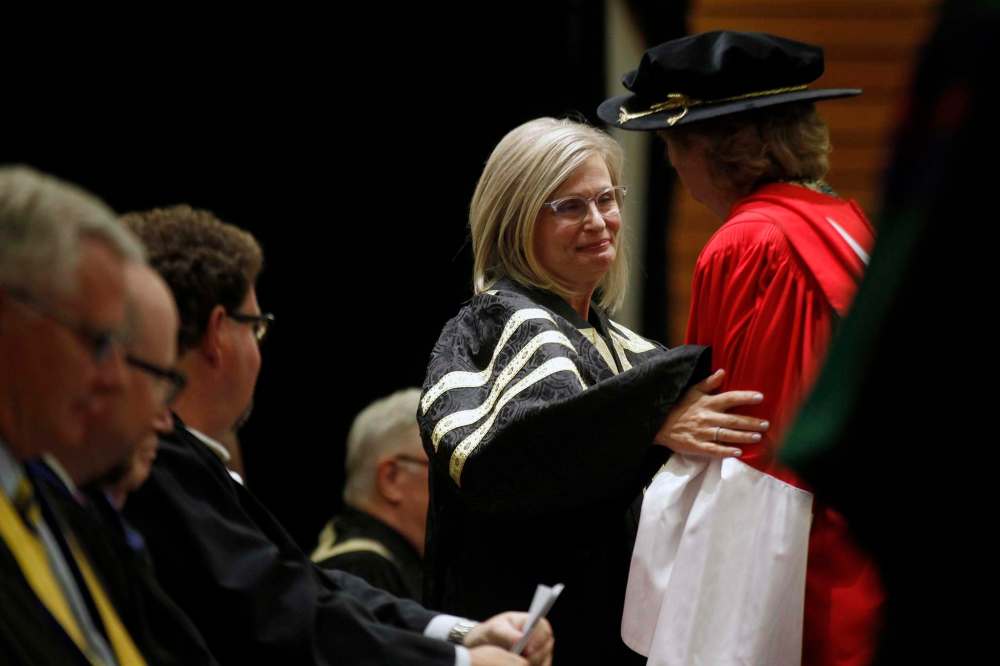
The chancellor post is largely ceremonial, does not come with a salary and the main duties include sitting on boards and committees, acting as an adviser to the president and managing relations with other organizations.
The chancellor is also responsible for conferring all degrees and diplomas, which means there are hands to shake. A lot of them. Which can be challenging when you undergo shoulder surgery a month after taking office.
“(The surgery) was not from shaking hands. It was from playing a lot of tennis and riding my bike. I had rotator cuff surgery and a very large tear,” Mahon says. “I was a little unsure what would happen when I was shaking hands with students in October at three convocations. But my shoulder was fine.
“The firmest handshakes definitely come from the Asper School of Business. They are deliberate, they are assertive, pumping up and down. Is ‘forthright’ the right word? I’d have to look up forthright.”
The mere act of shaking hands — “I’ve felt all kinds of different hands, big and beefy, tender and fine-boned, like a bird” — has helped her forge a connection with thousands of graduates.
“I love that (club). We meet once a month with women who are incarcerated and talk about books. We have some very insightful conversations. The women are lovely, very polite. Some are voracious readers and some just want to get out of their cells.” – Mahon on the Book Mates club at the Women’s Correctional Centre in Headingley
“What I have learned seriously from shaking hands is that if you look someone in the eye, use their name where possible, smile at them and have a physical touch, and if you are both present, you really can make a connection even if it’s very brief. That was kind of the same lesson I learned from Michelle Obama — if you are present and you choose to, you can connect.”
Mahon forged a connection with Obama, serving as moderator when the charismatic former U.S. first lady’s speaking tour stopped in Winnipeg in September. “She’s just like you would imagine she would be. She was funny, very warm, a hugger. She probably hugged me five times,” Mahon recalls of that day. “I felt we did connect. It sounds like we dated.… At the end, I looked at her and said, ‘I don’t know what I’m going to remember about today, but I know I will always remember your very kind and friendly eyes.’”
Mahon is determined to make a real difference for the school, its students and staff, and the community at large.
“Besides conferring degrees and sitting on committees, I really think the chancellor’s job is to be a bridge from the university to the community and then back from the community to the university,” she says.
“Students and I do have something in common; we both care about the place they are going to school…. It’s a role with no power, but some influence.”
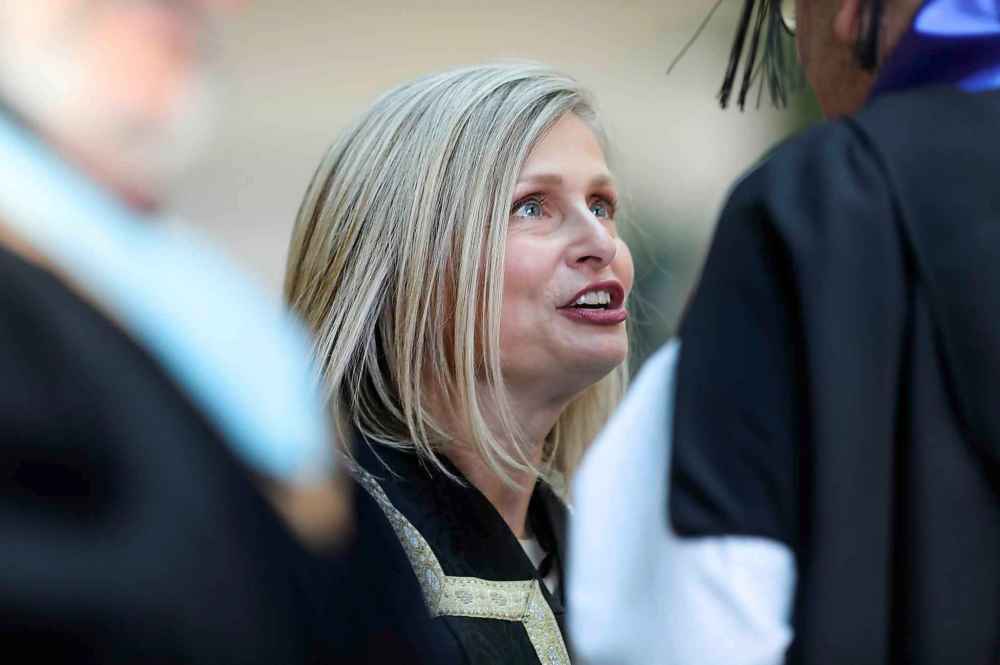
She’s all about making the campus more inclusive and welcoming to everyone in a meaningful way. That includes using social media to let students know what she’s up to.
“I’ve created an Instagram account and I’m posting the activities of what a chancellor does on my Instagram feed,” she says. “I’m trying to be authentic on my Instagram. Connect with students, connect with the community, give people an insight into what the chancellor does.”
She is also determined to meet with all the student communities the school needs to serve — Indigenous, international, LGBTTQ+, newcomers.
“I’m always thinking about those communities. It’s not my place to speak for them, but it is my desire to get to know them and to be an encourager,” she says.
Being inclusive also means making an attempt to address people in their own languages, whether it’s French, English, an Indigenous language or Michif, the Métis language.
“Our community, the settler community, has undervalued the Indigenous, and one of my priorities at the university is to support, and change that experience. My hope is that Indigenous people will be valued more and more at the university and in the community.”
The goals are lofty, but don’t suggest they are heroic.
“Heroes, for me, are really the everyday people,” she says.
“It sounds clichéd, but when I see a newcomer dressed in a coat waiting for a bus, or I see somebody in the inner city with a stroller going through the snow with their kid in the morning — those, to me, are the heroes. They are living their life the best they can. They have, probably, limited means and they’re just trying to provide the best they can for their families and for themselves. For me, those are really the heroes of society.”
doug.speirs@freepress.mb.ca

Doug has held almost every job at the newspaper — reporter, city editor, night editor, tour guide, hand model — and his colleagues are confident he’ll eventually find something he is good at.
Our newsroom depends on a growing audience of readers to power our journalism. If you are not a paid reader, please consider becoming a subscriber.
Our newsroom depends on its audience of readers to power our journalism. Thank you for your support.

